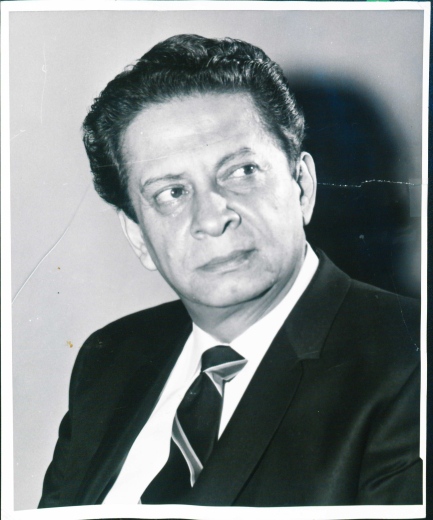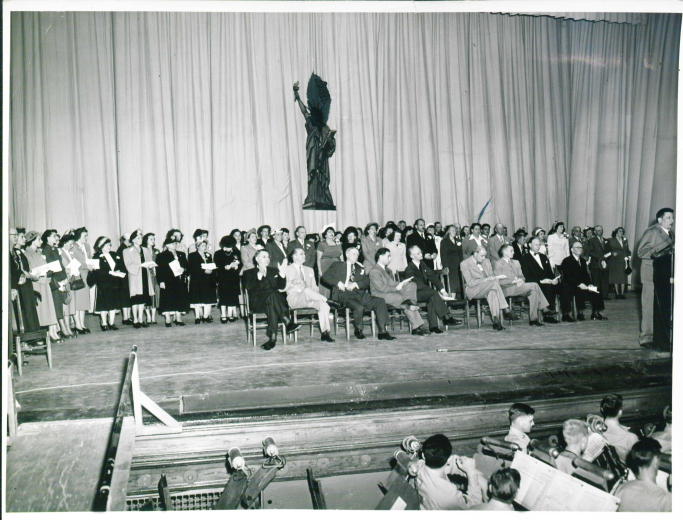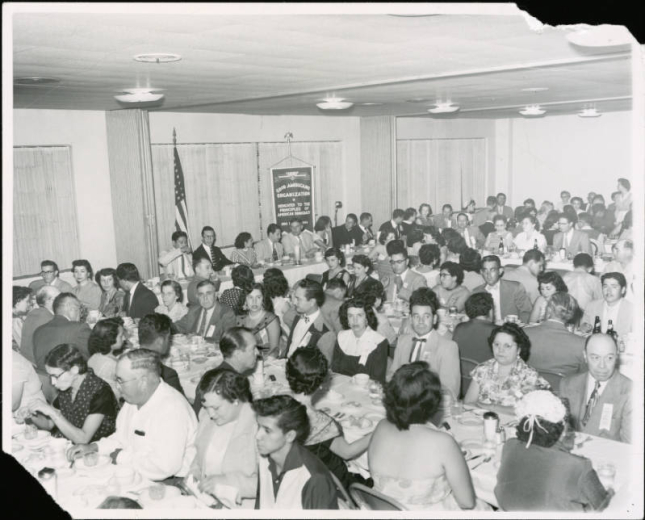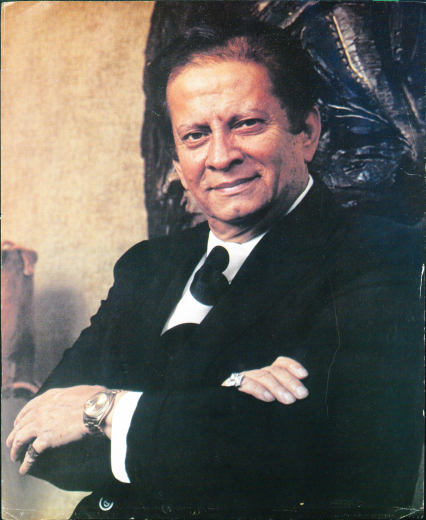Paco Sanchez came to America, started Denver's first Latino radio station, and helped built institutions to serve the community.
Francisco Valadez Sanchez was born in Guadalajara, Mexico, on December 9, 1915. He and his wife Hilda Maria were both performers in Mexico. Early in his career, Paco performed as a magician and opened for Mariachi shows. He first arrived in Denver in 1948 as the master of ceremonies for a Mexican music show. He soon realized that there was no Spanish language radio station in the city and sought to change that. He promptly moved his family to Denver and began working at Lito’s furniture store downtown.
While 30,000 Latinos lived in Denver by the late 1940s, there were no Spanish language radio shows or Latin music broadcasts. Though he was not yet fluent in English, by 1949 Sanchez had negotiated with radio station executives to buy time on KTLN and KMYR to broadcast his own show. In 1951, he officially became a United States citizen and, by 1954, he had purchased his own AM radio station, KFSC. He started broadcasting from his home at 3343 Lafayette Street and was an immediate success. Eventually, his station moved to a more permanent location at 2185 Broadway. Personal success, however, was not enough for Paco. He sought to improve the lives of other Latinos and immigrants living in Colorado.
In the early 1950s, there was a great deal of prejudice against Latinos and roadblocks to basic opportunities like banking and home buying for those families. Redlining had made it very difficult for minorities in poor communities to own their own homes. In response, Paco started the Good Americans Organization. The organization invited families to join and gave them access to banking through their own GAO credit union. This made it easier for families to save money and obtain loans.
In 1968, the GAO became the first private organization in the city to found a housing project for low-income families. The Avondale housing project was built at Colfax and Federal and provided assistance to families who couldn't afford the full cost of rent. In 1970, Paco and the GAO also worked with Mayor Bill McNichols to start the Juanita Nolasco-Dionisio Maes housing project at West Ninth Avenue and Utica Street. Those projects included federal aid for low-income families.
Paco’s interest in service to others was not constrained to community organizations and collaborating with city government. In 1968, he won election to the Colorado House of Representatives. While he was running for a second term in office, someone set fire to his radio station and he never held office again. He also worked to build affordable housing in more rural parts of the state like Firestone and Lamar. Paco did receive criticism for not participating more actively in the Chicano protest movements of the late 1960s and early 1970s, but he earned a great deal of respect for what he was able to accomplish within the Latino community and for the state more generally. He died in 1973 due to complications following surgery. He was 57 years old. Today, his memory lives on in the park named for him in West Denver.
master of ceremonies - someone who announces performers at concerts and other performances
redlining - a system by which poor and minority community members were denied home loans
credit union - a type of bank that is owned by members
Do you think Paco's experience as an immigrant versus Latinos who grew up in the Denver area are different? How?
What do you think led him to be so passionate about things like housing and banking within the community?
What kinds of issues are you passionate about in your own community?
Richard T. Castro Papers - Contains Castro's research on local Hispanic leaders




